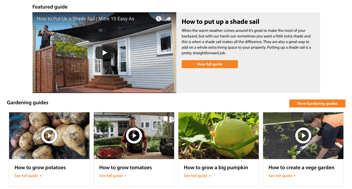Effective Inbound Marketing Strategies for Business Growth
Buzz words such as inbound marketing, marketing automation and big data can make it sound like marketing is going through a bit of a identity crisis. Technology has been both the lifeblood of good marketing and its biggest challenge, with marketers struggling to know which bandwagon to jump on and being cautious to jump on them at all.

Some of these 'new' approaches are rooted in classical marketing pain points and, when harnessed correctly, can revolutionise a marketing professional's output.
Take marketing automation as an example. It cannot replace the work a marketer does as AI isn't yet intelligent enough to build campaigns based on emotions. but it can massively speed up the work the marketer does and create consistency.
We use marketing automation to qualify an enquiry before it goes to the sales team. this is a process-based task as many sales teams have set criteria for a 'good fit' client. We apply these criteria to an enquiry saving sales people from doing this task manually.
Big Data has roots in implicit and explicit data forms. That is the difference in data that is directly stated (in a form submission for example), and data that is not directly stated (behavioural or implied). Again, a good marketer uses both to better understand the statistical data before them and refines marketing tactics to improve performance.
Inbound marketing takes these two assets, and more, to create a marketing approach that is slightly different. We've already explained the difference between inbound and outbound marketing before but the application of customer-centric marketing with big data and automation is the tip of a very big iceberg.
Inbound marketing encourages businesses to think of their ideal marketing target (often different to the target market) and create a buyer persona from them. This can be based on salesperson experience and implicit and explicit data. Even once they're created you can use implicit data (page views, downloads, blog reads) to refine those profiles for future campaigns.
Automation can pull data from web page views, create tasks for sales people and send highly targeted emails relevant to that potential customer.
Applying inbound marketing strategies to any business is the next evolution of marketing. It makes limited budgets work harder, makes human assets work harder and gets the machines doing some of the heavy lifting.
Software, like HubSpot, is able to take your marketing to the next level. But not if your business wants to keep marketing the way it's always been done.
One of the best ways to see if inbound strategies would suit your business it to reflect on the amount of times a new idea has been met with 'but that's the way we've always done it', or my personal favourite 'that will never work for us'. If you hear either of those sayings regularly then inbound might not be for your business!
Download your free guide to Smarter SEO
Good SEO can mean the difference between your business being found, or you being lost in the growing mass of online resources. This guide is designed to help you rise above your competition.
Download now



